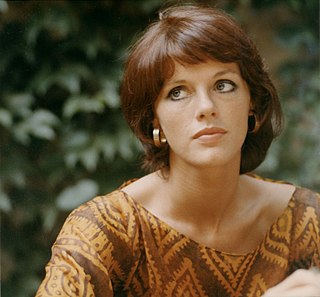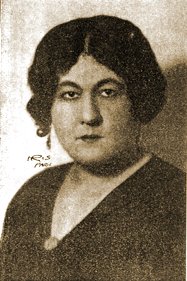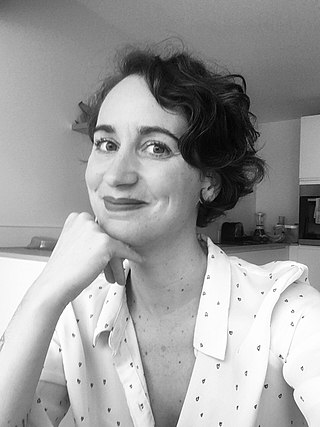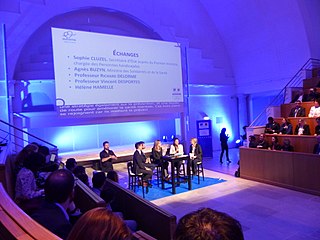
The post-autistic economics movement, or movement of students for the reform of economics teaching, is a political movement that criticises neoclassical economics and advocates for pluralism in economics. The movement gained attention after an open letter signed by almost a thousand economics students at French universities and grandes ecoles was published in Le Monde in 2000.

Samuel Le Bihan is a French actor, known for his role in Brotherhood of the Wolf and TV series Alex Hugo. He was awarded a knighthood in the Legion of Honour in 2024 for his work on behalf of children with autism and their families.

Madeleine Pelletier was a French psychiatrist, first-wave feminist, and political activist. Born in Paris, Pelletier frequented socialist and anarchist groups in her adolescence. She became a doctor in her twenties, overcoming a large educational gap, and was France's first woman to receive a doctorate in psychiatry. Pelletier joined freemasonry, the French Section of the Workers' International, and came to lead a feminist association. She set out to join the October Revolution but returned disillusioned. In France, she continued to advocate for feminist and communist causes, and wrote numerous articles, essays, and literary works, even following a stroke in 1937 which made her hemiplegic. Pelletier was charged with having performed an abortion in 1939 despite her condition precluding her ability to perform this act. She was placed in a mental asylum where her health deteriorated and she died of a second stroke later that year.

Anny Duperey is a French actress, published photographer and best-selling author with a career spanning almost six decades as of 2021 and more than eighty cinema or television credits, around thirty theatre productions and 15 books. She is a five-time Molière Award for Best Actress nominee, was awarded two 7 d'Or and was nominated for the César Award for Best Supporting Actress for Yves Robert's Pardon Mon Affaire (1976). In 1977, she received the Prix Alice-Louis-Barthou awarded by the Académie Française. She is more commercially known for her leading role as Catherine Beaumont in the TF1 hit series Une famille formidable which ran for 15 seasons (1992-2018) regularly topping national primetime viewership numbers and also broadcast throughout French-speaking Europe peaking at 11 million viewers in France alone. Some of her most notable feature films include Jean-Luc Godard's Two or Three Things I Know About Her (1967); Roger Vadim's Spirits of the Dead (1968); André Hunebelle's The Return of Monte Cristo (1968); Alain Resnais' Stavisky (1974); Umberto Lenzi's From Hell to Victory (1979); Henri Verneuil's A Thousand Billion Dollars (1982), Claude Berri's Germinal (1993) or Alain Resnais' You Ain't Seen Nothin' Yet (2012). Her trapeze number for the Gala de l'Union des artistes with Francis Perrin as well as her 'red dress scene' with Jean Rochefort swaying her hips as a nod to Marilyn Monroe on Vladimir Cosma's original score both became cult in French popular culture. She was made a Chevalier of the Légion d'honneur as part of the French Republic's 2012 New Year decoration class also honouring Hélène Carrère d'Encausse, Maurice Herzog and Salma Hayek. She has been a supporter of the charity SOS Children's Villages since 1993.
Virginie Guilhaume is a French television presenter.
Laurent Mottron in France, is a psychiatrist, researcher, and a professor at Montreal University. He is a specialist in cognitive neuroscience research in autism at the University of Montreal.

Wassyla Tamzali is an Algerian writer, lawyer, and feminist.

Christiane Collange was a French journalist and author.

Marlène Schiappa is a French writer and politician who served as State Secretary for the Social and Solidarity Economy and Associative Life, attached to the Prime Minister, in the Borne government (2022-2023), as Minister Delegate in charge of Citizenship, attached to the Minister of the Interior, in the government of Prime Minister Jean Castex (2020–2022) and as Secretary of State for Gender Equality in the government of Prime Minister Édouard Philippe (2017–2020).

Léa Clermont-Dion is a Canadian author, feminist, television and radio host, and body image advocate. She was a co-facilitator, with Jacinthe Veillette, and spokesperson of the Québec Charter for a Healthy and Diverse Body Image. Clermont-Dion came to public attention during an appearance on the television programme Tout le monde en parle in October 2009. She is a doctoral student in political science at Laval University and the author of La revanche des moches (2014) and Les Superbes (2016).

Approximately 12 million French citizens are affected by disability. The history of disability activism in France dates back to the French Revolution when the national obligation to help disabled citizens was recognized, but it was "unclear whether or not such assistance should be public or private." Disabled civilians began to form the first associations to demand equal rights and integration in the workforce after the First World War. Between 1940 and 1945, 45,000 people with intellectual disabilities died from neglect in French psychiatric asylums. After the Second World War, parents of disabled children and charities created specialized institutions for disabled children for whom school was not accessible. In 2018, the French Government began to roll out a disability policy which aimed to increase the allowance for disabled adults to €900 per month, improve the digital accessibility of public services, and develop easy-to-read and understand language among other goals.

Marcelle Capy is the pseudonym adopted by Marcelle Marquès (1891–1962), a French novelist, journalist, feminist and militant pacifist. She published a number of works from 1916 to 1950, all devoted to her interest in pacifism. She is remembered in particular for her award-winning Des hommes passèrent, published in 1930. As a journalist, she contributed to many papers, especially La Vague which she co-founded in 1918. In the early 1930s, she was an active member of the Ligue internationale des combattants de la paix.
Femmes algériennes pour un changement vers l'égalité or FACE is a women's organisation created during the 2019 Algerian "Hirak" protests and credited with the invention of the "feminist square", a part of the Friday Hirak protests held in front of Algiers 1 University.

Brigitte Peskine was a French author and screenwriter.

Julie Dachez is a French social psychologist, lecturer and autism rights activist. She's the author of Invisible Differences and Dans ta bulle!. In 2016, she became the first openly autistic person to defend a thesis on the subject in France.
Marion Leboyer is a French psychiatrist, university professor and hospital practitioner at the Paris-Est Créteil University (UPEC).
Andrée Michel was a French sociologist, feminist, anticolonialist, and antimilitarist.
Anaïs Bourdet is a French feminist activist, against street harassment and the rape culture.

Equine-assisted therapy or equine-assisted therapy on autistic people is a therapy using a mediating horse or pony. A session can take place on foot or on horseback. Equine-assisted therapy is one of the few animal-assisted therapies regularly studied for its effectiveness, and the most popular of all autism therapies.

The history of autism in France is marked by the strong influence of psychoanalysis, and by the persistence of institutionalization practices that violate the fundamental rights of autistic people. According to estimates at the end of 2016, 0.7 to 1% of the French population has an autism spectrum disorder, most of which is undiagnosed, leading to varying degrees of disability.














